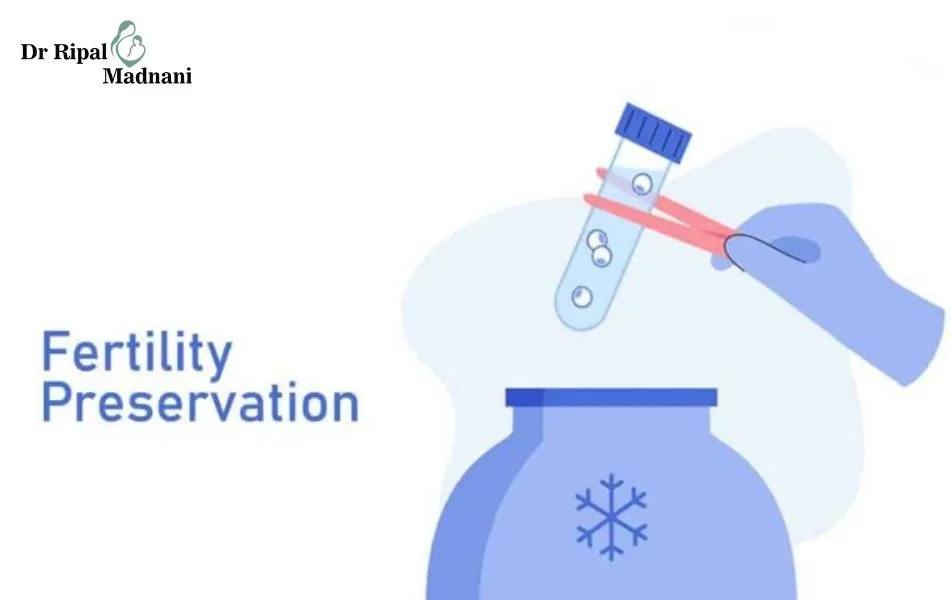
Fertility preservation is the process of storing eggs, sperm, embryos, or reproductive tissue to potentially have biological children in the future.
- It’s available for both adults and children of all genders.
There are two main reasons for fertility preservation:
Medical: To protect fertility from treatments like cancer therapy.
Elective: To delay childbearing for personal reasons (career, finding a partner)
Why is fertility preservation done?
- When the biological clock Is ticking (irrespective of gender)
- Cancer therapy (irrespective of gender)
- Autoimmune diseases causing fertility issues
- Endometriosis
- Surgery involving the ovary
- Certain genetic conditions
- Childhood cancer involving genital organs
Fertility preserving methods for women:
- Egg freezing
- Embryo freezing
- Ovarian tissue freezing
- Ovarian transposition
- Radiation shielding
Fertility preserving methods for men:

How successful are the fertility preservation procedures?
Fertility preservation procedures do not guarantee pregnancy. In an average egg-freezing cycle, 90% of the eggs will survive thawing. 70% fertilization 45% would be turned into pregnancy and 37.9% would live birth rate.
Chances of success pregnancy rate of egg collection
- Under the age of 35, the success rate is 32%
- Between ages 35-37, the success rate is 25%
- Between age 38-39, the success rate is 19%
- Between age 40-42, the success rate is 11%
- Between ages 43-44, the success rate is 5%
- Age more than 44 years the success rate is 4% or less.
How many injections do I have to take for egg freezing?
Approximately 8-12 days of injections are required by a woman to freeze her eggs and it depends on the woman’s age, BMI, AMH report, and hormone profile.
· Risks associated with egg freezing
Serious risks such as ovarian hyperstimulation syndrome, infection, bleeding from ovaries, and ovarian torsion.
· Future side effects after egg freezing
There are no long-term side effects of egg freezing.
How many eggs are enough to freeze?
This is very difficult to answer as it depends on many factors. There is an egg calculator available in which a woman can enter her details such as age, ethnicity, and AMH values and this software will calculate the probability of future success rate of having one child and more than one child probability. Again, in this probability woman has to consider the future partner’s sperm analysis parameters.
What is the best age to freeze the eggs?
The ovarian reserve (AMH level), age, and egg quality are the most important factors to consider the best outcome for eggs freezing. When eggs are frozen before the age of 35, it will provide the highest number of healthy eggs.
How many times the egg-freezing procedure is done?
Although there is no limit on how many times a woman can freeze her egg, it depends on a woman’s future fertility wishes about the number of kids. She can calculate the percentage possibility of several eggs required to meet her needs.
Is egg freezing painful?
This procedure may cause some pelvic discomfort and pelvic pressure but in expert hands such as Dr. Ripal Madnani the experience is not painful.
Can I freeze the eggs even if I am a virgin?
Yes definitely. Your virgin status does not change your ability to undergo the egg preservation process. Apart from the vagina, it can be performed through the abdomen or rectal route.
How much expensive is the egg-freezing process?
Eggs freezing can cost you in UAE between 15000-20000 AED per cycle with every year storage renewal fees of 3000-4000 AED.
How long I can freeze my eggs?
Scientifically you can freeze your eggs for many years, but the allowed age limit for women to keep the eggs frozen in UAE is 48 years of age.